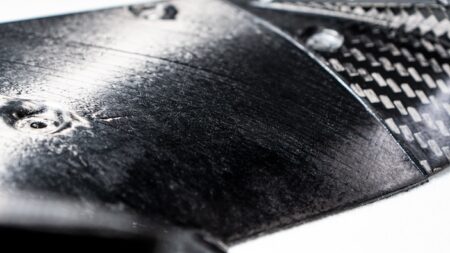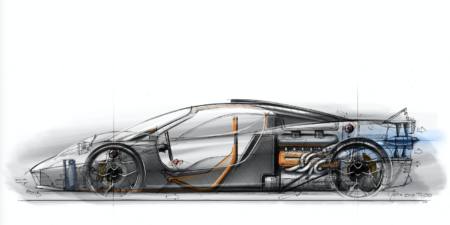ZF Friedrichshafen AG has revealed its latest concepts in weight-saving chassis components.
Going beyond the fiber-reinforced thermoplastic pedal assembly, and fiber-glass reinforced polyamide engine mounts, as adopted by the Renault-Nissan group on several small cars, ZF’s conceptual work focuses on introducing weight-saving materials into core chassis components.
The 2013 IAA saw ZF debut a lightweight suspension strut and knuckle module, of mixed-material construction. Using a combination of fiber-reinforced plastics, aluminum, and high-strength steels, the concept is said to offer weight savings of around 40% over a conventional steel design.
Elsewhere, ZF’s lightweight expertise has led to the development of a complete passenger car rear axle assembly, complete with wheel-guiding transverse spring made of glass-fiber-reinforced plastic. ZF states that the benefits of this concept are two-fold. Firstly, the mixed-materials construction offers a weight saving of around 15% over a conventional assembly, whilst the integrated wheel guiding transverse spring reduces the complexity of the unit over a multilink set-up.
By allowing the spring to control the wheel’s guidance, as well as the bounce and roll of the suspension, the number of components in the assembly is reduced; ultimately saving space and further weight for OEMs.
These new products accompany news that ZF inaugurated its Composites Tech Center, in Schweinfurt, Germany, earlier this year with a key objective of bringing these concepts to volume production. The center will also focus on developing new process technologies for the volume production of fiber-reinforced products, allowing for the ‘maturity of many lightweight concepts’, according to the German supplier.




